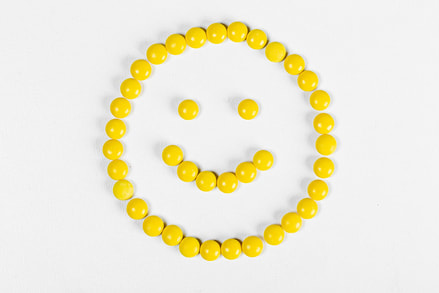
Why do prescription drugs always seem to contain such extensive listings of “Indications and Contraindications?” Take, for example, Chlorthalidone, a popular medication for high blood pressure.
Chlorthalidone Indications:
Chlorthalidone is a thiazide diuretic (water pill) that helps prevent your body from absorbing too much salt, which can cause fluid retention. Chlorthalidone treats fluid retention (edema) in people with congestive heart failure, cirrhosis of the liver, or kidney disorders, or edema caused by taking steroids or estrogen. Chlorthalidone is also used to treat high blood pressure (hypertension). Chlorthalidone may also be used for purposes not listed in this medication guide.
Okay, that’s pretty straight-forward. Now, moving on:
Contraindications:
Call your doctor at once if you have:
So… The taking of this drug has been proven to help control blood pressure, but it also puts you at risk for several other “issues.” Which seems to mean, “Be careful. The adverse side effects of this drug may far exceed the cure and/or any improvement you might experience.” Kinda scary actually.
At some point, wouldn’t it be nice to discover a medication providing more desirable side effects?
Take, for example, a new prescription medication for women suffering from hay fever called, “Achoobegone,” with the following warnings:
Contraindications:
Achoobegone contains active ingredients which may cause a reddening and dryness of the nostrils. Achoobegone has proven to be least effective in the spring and fall when the onset of hay fever is most common. Taken in capsule form, Achoobegone may cause a significant increase in flatulence (which the patient doesn’t experience due to their clogged nasal passages.)
Indications:
Achoobegone contains properties which reduce disorders of the stomach and intestines, resulting in improved digestion and more consistent body functions. Achoobegone may result in a significant firming and enlargement of the breasts.
Used regularly, Achoobegone has been shown to cause a pronounced slimming of the waist, hips and thighs. In rare cases, Achoobegone has been linked to a whitening of the teeth and a seductive fullness of the lips. Another potential side effect is renewed luster, sheen and body to previously limp, dank hair. Women taking Achoobegone frequently report an elevation in both libido and personal standards, accompanied by a strong desire to interact with a better class of men. Closely linked to this particular side effect, women have undergone a marked decrease in depression, replaced by an increase in both self-esteem and fashion savvy (specifically swimwear and shoes) along with a healthy new enjoyment of “night sweats.” After taking Achoobegone over an extended period of time, numerous women have been completely cured of Hay Fever, resulting in the need to carry a shaker of pepper during visits to their physician.
Or, let’s say, men are seeking relief from Erectile Disfunction, and receive a prescription for “Regainachub.”
Indications:
Regainachub has been shown to provide Mr. Wiggly with increased stature and durability. That’s about it.
Contraindications:
It is critically important when taking Regainachub for men to pay strict attention to: dosage levels; frequency and timing of application; and properly-managed expectations. Regainachub has been shown to cause a severe stiffening of the neck if ingested to slowly. Immediately after taking Regainachub, men have often suffered from delusions of grandeur, followed by prolonged periods of frustration and thigh irritation. When taking Regainachub, a majority of men experienced difficulty walking accompanied by lightheadedness, shortness of breath and blurred vision.
Of greatest concern when taking Regainachub is the avoidance of crowded public areas. Especially now, during this time of social distancing, men are encouraged to carry and wear two interchangeable masks at all times. Like many pharmaceuticals, Regainachub has performed well in clinical trials, only to result in complete organ rejection in society. In virtually all cases, men taking “Regainachub” have experienced severe depression after interacting with women taking “Achoobegone.”
How about that?
Chlorthalidone Indications:
Chlorthalidone is a thiazide diuretic (water pill) that helps prevent your body from absorbing too much salt, which can cause fluid retention. Chlorthalidone treats fluid retention (edema) in people with congestive heart failure, cirrhosis of the liver, or kidney disorders, or edema caused by taking steroids or estrogen. Chlorthalidone is also used to treat high blood pressure (hypertension). Chlorthalidone may also be used for purposes not listed in this medication guide.
Okay, that’s pretty straight-forward. Now, moving on:
Contraindications:
Call your doctor at once if you have:
- a light-headed feeling, like you might pass out;
- low sodium--headache, confusion, slurred speech, severe weakness, vomiting, loss of coordination, feeling unsteady;
- low potassium--leg cramps, constipation, irregular
- heartbeats, fluttering in your chest, increased thirst or urination, numbness or tingling, muscle weakness or limp feeling;
- low magnesium--dizziness, irregular heartbeats, feeling jittery, muscle cramps, muscle spasms, cough or choking feeling; or kidney problems--little or no urination, swelling inyour feet or ankles, feeling tired or short of breath.
So… The taking of this drug has been proven to help control blood pressure, but it also puts you at risk for several other “issues.” Which seems to mean, “Be careful. The adverse side effects of this drug may far exceed the cure and/or any improvement you might experience.” Kinda scary actually.
At some point, wouldn’t it be nice to discover a medication providing more desirable side effects?
Take, for example, a new prescription medication for women suffering from hay fever called, “Achoobegone,” with the following warnings:
Contraindications:
Achoobegone contains active ingredients which may cause a reddening and dryness of the nostrils. Achoobegone has proven to be least effective in the spring and fall when the onset of hay fever is most common. Taken in capsule form, Achoobegone may cause a significant increase in flatulence (which the patient doesn’t experience due to their clogged nasal passages.)
Indications:
Achoobegone contains properties which reduce disorders of the stomach and intestines, resulting in improved digestion and more consistent body functions. Achoobegone may result in a significant firming and enlargement of the breasts.
Used regularly, Achoobegone has been shown to cause a pronounced slimming of the waist, hips and thighs. In rare cases, Achoobegone has been linked to a whitening of the teeth and a seductive fullness of the lips. Another potential side effect is renewed luster, sheen and body to previously limp, dank hair. Women taking Achoobegone frequently report an elevation in both libido and personal standards, accompanied by a strong desire to interact with a better class of men. Closely linked to this particular side effect, women have undergone a marked decrease in depression, replaced by an increase in both self-esteem and fashion savvy (specifically swimwear and shoes) along with a healthy new enjoyment of “night sweats.” After taking Achoobegone over an extended period of time, numerous women have been completely cured of Hay Fever, resulting in the need to carry a shaker of pepper during visits to their physician.
Or, let’s say, men are seeking relief from Erectile Disfunction, and receive a prescription for “Regainachub.”
Indications:
Regainachub has been shown to provide Mr. Wiggly with increased stature and durability. That’s about it.
Contraindications:
It is critically important when taking Regainachub for men to pay strict attention to: dosage levels; frequency and timing of application; and properly-managed expectations. Regainachub has been shown to cause a severe stiffening of the neck if ingested to slowly. Immediately after taking Regainachub, men have often suffered from delusions of grandeur, followed by prolonged periods of frustration and thigh irritation. When taking Regainachub, a majority of men experienced difficulty walking accompanied by lightheadedness, shortness of breath and blurred vision.
Of greatest concern when taking Regainachub is the avoidance of crowded public areas. Especially now, during this time of social distancing, men are encouraged to carry and wear two interchangeable masks at all times. Like many pharmaceuticals, Regainachub has performed well in clinical trials, only to result in complete organ rejection in society. In virtually all cases, men taking “Regainachub” have experienced severe depression after interacting with women taking “Achoobegone.”
How about that?

